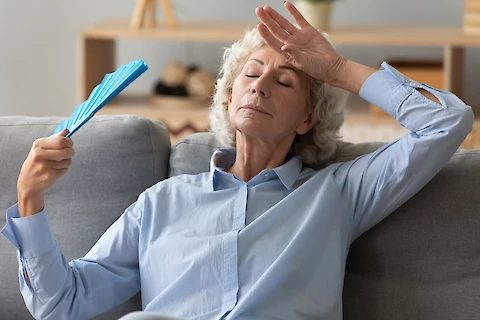
The risk of heat stroke intensifies during the summer months, especially for seniors. It is smart for caregivers to be prepared for any potential medical event and to keep a close eye on loved ones. This Senior Helpers blog post discusses the early symptoms of heat stroke and provides valuable information on recognizing and preventing this potentially life-threatening condition.
What is Heat Stroke?
Heat stroke is a serious medical condition where the body overheats, usually due to prolonged exposure to high temperatures or physical exertion in hot weather. When the body's temperature regulation system fails, it can lead to dangerously high body temperatures requiring immediate medical attention. Seniors are particularly at risk due to their reduced ability to regulate body temperature, chronic health conditions, and taking certain medications.
Early Symptoms of Heat Stroke
Detecting the early signs of heat stroke is the best way to prevent complications and keep your senior loved one safe. Some of the common early symptoms to look out for include:
- High body temperature (103°F or higher)
- Altered mental state, including confusion, agitation, or slurred speech
- Nausea and vomiting
- Rapid, shallow breathing
- Rapid heart rate
- Headache
- Flushed skin
- Heavy sweating or, in some cases, a lack of sweating despite the heat
How Quickly Can Heat Stroke Set In?
The onset of heat stroke can often be rapid and unpredictable. It sometimes occurs within minutes to hours of exposure to high temperatures or strenuous activity. Factors like humidity, sun exposure, and individual sensitivity can affect how quickly heat stroke sets in. Caregivers must closely monitor your senior loved ones and be proactive about keeping them cool and hydrated, especially on hot summer days.
The Role of Medications for Heat Stroke Symptoms
Certain medications can increase the risk of heat stroke or affect the presentation of its symptoms. For example, diuretics, antihistamines, and beta-blockers can reduce the body's ability to regulate temperature, making seniors more susceptible to heat stroke. Medications like antipsychotics and antidepressants can interfere with sweating. This further complicates the body's response to heat. It is essential to be aware of any medications your senior loved one is taking and to discuss their potential side effects with their healthcare provider.
Unusual Symptoms Based on the Senior's Medical History
Sometimes the presentation of heat stroke symptoms can be influenced by a senior's medical history. Those with a history of heart or lung disease may experience increased shortness of breath or chest pain. Likewise, seniors with diabetes may have altered mental status or dizziness due to dehydration and high blood sugar levels. Knowing your loved one's medical history helps you recognize unusual symptoms of heat stroke and seek prompt medical attention.
Preventing Heat Stroke in Seniors
Prevention is key when it comes to protecting seniors from heat stroke. The following tips can help caregivers keep loved ones stay cool and hydrated on hot summer days.
- Encourage them to drink plenty of fluids, even if they are not thirsty
- Provide light, loose-fitting clothing to stay cool
- Encourage frequent breaks in the shade or air-conditioned spaces during hot weather
- Apply sunscreen and suggest they wear a wide-brimmed hat when outdoors
- Monitor the weather forecast and plan outdoor activities accordingly
Senior Helpers Helps Keep Seniors Safe
Senior Helpers offers customized, in-home care services to the senior community and their families. If you need support caring for a senior in Laurel, Waynesboro, Wiggins, or Hattiesburg, don't hesitate to contact Senior Helpers Hattiesburg. We are here to provide the assistance you need to keep your loved ones safe, healthy, and comfortable all year.